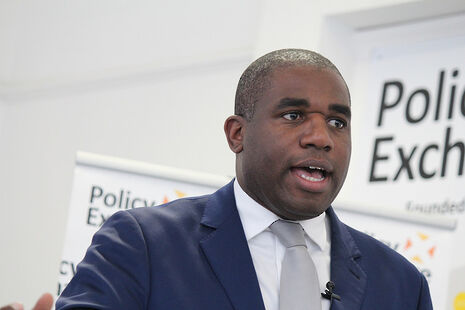David Cameron’s unprecedented statement on race
The Prime Minister’s new agenda on the representation of BME people in UK institutions is intriguing, says Amatey Doku

Last weekend the Prime Minister announced that he was to bring forward plans to tackle race discrimination in British institutions as part of his “ambitious ‘2020 agenda’ for BME communities”. Writing in The Sunday Times, he explicitly targeted Universities and the Justice system and argued that more needed to be done to end this discrimination.
I hope readers of my previous column will forgive me for writing about David Cameron’s comments regarding ethnic minorities for two weeks in a row, but I was drawn immediately to the fact that these were two completely different stories. In last week’s column, the PM was blaming, in part, Muslim women for failing to integrate into British society, but now key British institutions are now in the dock.
On the criminal justice system, the PM noted that “if you’re black, it seems you’re more likely to be sentenced to custody for a crime than if you’re white” and announced that David Lammy will be leading a review into the “overrepresentation of BME communities in the criminal justice system”. Responding to his appointment on Facebook, the MP for Tottenham welcomed this opportunity, saying that his review would look at the issues and report back with recommendations in spring 2017.
The stats presented by the PM and others are pretty damning. The Prime Minister highlights that there are no black generals in the armed forces and just 4 per cent of chief executives in the FTSE 100 are from ethnic minorities. Turning his gaze on Oxford, the PM expressed concern that in 2014, his own university accepted only 27 black men and women out of an intake of more than 2,500.
A report by the Runnymede foundation in 2015 found that despite the fact that children from BME backgrounds are now more likely to go to university, they are concentrated in post-1992 new universities and underrepresented at elite Russell Group Universities. It was in this same report that Diane Reay, a professor at the Faculty of Education here in Cambridge, branded Oxbridge “institutionally racist”, a charge with both universities strenuously refuted.
The PM’s solution? Whilst he hints that the reason for this underrepresentation at these elite Higher Education institutions is complex, he announces that his government are going to bring forward legislation to force universities to publish comprehensive data on their applicants. This data would include the applicants’ gender, ethnicity and socio-economic background.
Unsurprisingly, Oxford disagreed with the Prime Minister’s approach, arguing that they “did not see the need” for legislation in this area and that much of this information is already available. Importantly, they argued that discrepancies lie in social inequalities which are “already pronounced before children begin formal schooling”. Harder to square, however, are findings that, even with the same grades, BME children are less likely to get into elite universities.
And herein lies the debate; in many ways Oxford are right to say that the problem cannot lie wholly with them and that other factors such as schooling limit their chances of attending these universities. And some may be right to point out that in his statement Cameron did not mention his own government’s austerity policies, which have been shown to disproportionately affect BME people as they are overrepresented in the public sector.
Whatever we think, we must appreciate that this is an unprecedented statement by the Prime Minister. Whilst some may see it as a deliberate ploy to win over ethnic minorities who have traditionally voted for the Labour Party, in Cameron’s usual statements about ethnic minorities, as we saw only last week, the minorities are normally to blame. He must recognise, however, that there is an abundance of factors, from university admissions to his own government’s economic policies that affect the life opportunities of BME people in Britain. His “2020 Agenda” for BME communities will be hugely undermined if he fails to take a broad holistic approach to tackle all the ways in which BME people continue to be disadvantaged
 News / Cambridge University disables comments following Passover post backlash 24 April 2024
News / Cambridge University disables comments following Passover post backlash 24 April 2024 Comment / Gown vs town? Local investment plans must remember Cambridge is not just a university24 April 2024
Comment / Gown vs town? Local investment plans must remember Cambridge is not just a university24 April 2024 News / Fitz students face ‘massive invasion of privacy’ over messy rooms23 April 2024
News / Fitz students face ‘massive invasion of privacy’ over messy rooms23 April 2024 Interviews / Gender Agenda on building feminist solidarity in Cambridge24 April 2024
Interviews / Gender Agenda on building feminist solidarity in Cambridge24 April 2024 Comment / Does Lucy Cavendish need a billionaire bailout?22 April 2024
Comment / Does Lucy Cavendish need a billionaire bailout?22 April 2024





